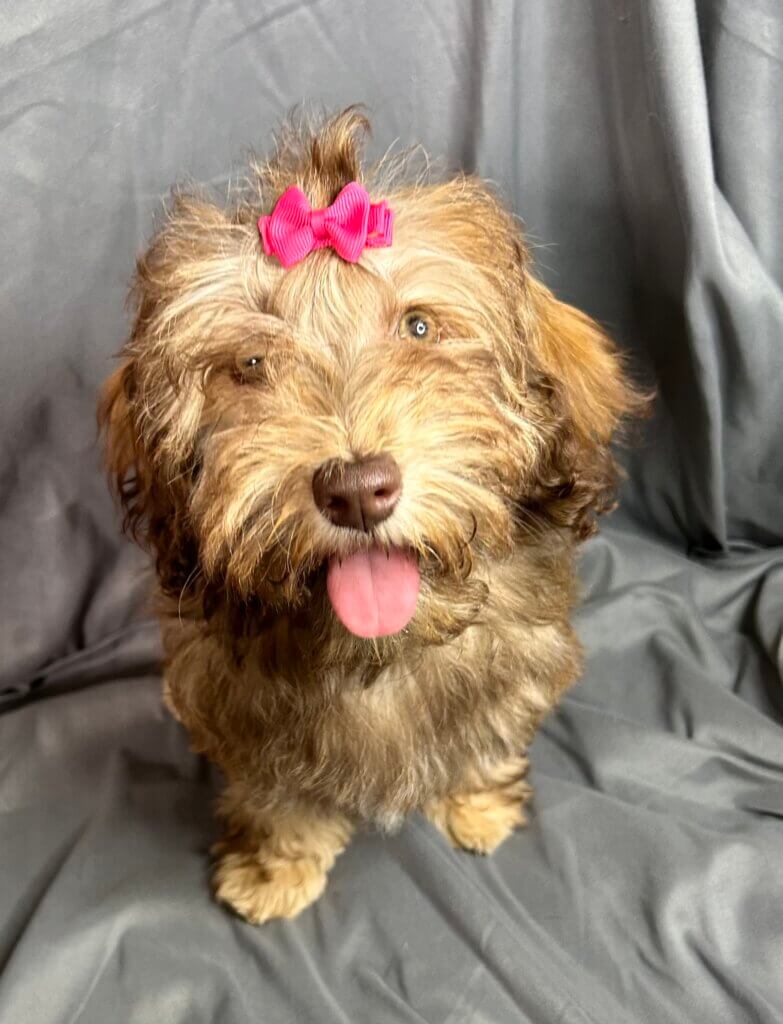Are you considering bringing home a Havanese puppy? These adorable, affectionate dogs are known for their playful personalities and loyal nature, making them an excellent choice for families and individuals alike. However, like any breed, there are several important factors to consider before making this life-changing decision. This comprehensive guide will help you understand the key aspects of Havanese ownership, ensuring you’re well-prepared to welcome your new furry friend into your home.
1. Introduction to the Havanese Breed
The Havanese is a small, sturdy dog of Cuban origin, with a rich history that dates back to the early 1500s. As the national dog of Cuba, the Havanese has long been cherished for its friendly and outgoing nature. Key characteristics include their silky coat, expressive eyes, and a tail that curls over their back. They typically weigh between 7 to 13 pounds and stand about 8.5 to 11.5 inches tall at the shoulder.
Key Characteristics of the Havanese:
- Temperament: Friendly, intelligent, and playful.
- Life Expectancy: 14 to 16 years.
- Exercise Needs: Moderate – regular walks and playtime.
- Coat Maintenance: High – requires regular grooming.
Understanding the fundamental traits of the Havanese can help you determine if this breed is a good fit for your lifestyle.
2. Factors to Consider Before Bringing Home a Havanese Puppy
Before you take the plunge and bring a Havanese puppy into your home, consider the following factors:
Living Space
Havanese dogs are adaptable and can thrive in various living environments, from apartments to larger homes. However, they do require enough space to move around and play. Ensure your living space can accommodate a small but active dog.
Time Commitment
Havanese puppies are social creatures and thrive on human interaction. They require dedicated time for training, socialization, and regular exercise. If you have a busy schedule, consider whether you can commit the necessary time to care for your puppy.
Family Dynamics
Consider how a new puppy will fit into your family dynamics. Havanese dogs are known to get along well with children and other pets, but it’s essential to ensure everyone in the household is on board and prepared for the responsibilities of pet ownership.
3. Health Considerations Specific to the Havanese Breed
Havanese dogs are generally healthy, but like any breed, they are prone to certain health issues. Being aware of these potential concerns can help you provide better care for your puppy.
Common Health Issues:
- Hip Dysplasia: A hereditary condition where the hip joint doesn’t fit properly into the hip socket.
- Patellar Luxation: A condition in which the kneecap dislocates from its normal position.
- Legg-Calvé-Perthes Disease: A hip joint disorder that leads to arthritis and pain due to the lack of blood flow to the femoral head.
- Eye Conditions: Including cataracts and progressive retinal atrophy.
Maintenance and Prevention:
Regular veterinary check-ups, a balanced diet, and appropriate exercise are crucial for maintaining your Havanese’s health. Additionally, consider genetic testing if you’re purchasing from a breeder to ensure the puppy’s parents are free from hereditary conditions.
4. Training and Socialization Needs for Havanese Puppies
Training and socialization are critical for a well-behaved and happy Havanese. These intelligent dogs respond well to positive reinforcement techniques and enjoy learning new commands and tricks.
Training Tips:
- Start Early: Begin basic obedience training and housebreaking as soon as you bring your puppy home.
- Consistency is Key: Be consistent with commands and rewards to reinforce good behavior.
- Socialization: Introduce your puppy to various people, environments, and other animals to build confidence and reduce anxiety.
Successful Integration:
Ensure your Havanese feels like part of the family by involving them in daily activities and providing plenty of love and attention. This breed thrives on companionship, so the more integrated they are into your life, the happier they will be.
5. Financial Planning for the Care of a Havanese
Owning a Havanese comes with financial responsibilities. It’s essential to plan for both the initial costs and ongoing expenses associated with pet ownership.
Initial Costs:
- Adoption Fee or Purchase Price: Depending on whether you adopt from a shelter or purchase from a breeder.
- Initial Veterinary Care: Vaccinations, spaying/neutering, and microchipping.
- Supplies: Crate, bed, toys, grooming tools, and food.
Ongoing Expenses:
- Food and Treats: High-quality dog food and treats to keep your Havanese healthy.
- Routine Veterinary Care: Annual check-ups, vaccinations, and preventative medications.
- Grooming: Regular grooming sessions to maintain their coat.
- Pet Insurance: Consider pet insurance to help cover unexpected medical expenses.
By planning for these costs, you can ensure your Havanese receives the care they need without financial stress.
Getting a Havanese Puppy
Bringing a Havanese puppy into your home is a rewarding experience, but it requires thoughtful consideration and preparation. By understanding the breed’s characteristics, considering your living situation, and planning for health, training, and financial aspects, you can be well-prepared to provide a loving and nurturing environment for your new furry friend.
Call to Action
Ready to take the next step towards welcoming a Havanese puppy into your life? Contact iHavanese today to learn about available puppies and upcoming litters. Our team is here to help you find the perfect companion and provide guidance throughout your journey as a Havanese owner.
Embrace the joy of Havanese ownership and experience the love and loyalty of this wonderful breed. Reach out to us now to get started!



